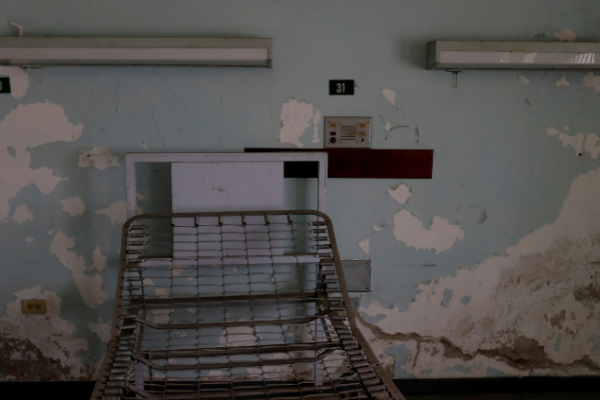- Frontera.Nicolás Maduro threatens Colombia with missiles and military exercises
- Jails: Maduro: a terror based on political prisoners
The emergencies of the main hospitals in Venezuela suffer a shortage of 43.3% of medicines and supplies that are considered essential for basic patient care, according to the most recent National Hospital Survey, prepared in July by several groups of doctors and the National Assembly, controlled by the opposition.
In the operating rooms, the situation is also worrisome, since 34.1% of the necessary medicines and instruments are missing, according to Dr. Julio Castro, who led the study.
However, availability has improved somewhat since last November , despite the power outages affecting the country, possibly due to the distribution of emergency kits to different hospitals by the International Federation of Red Cross and Media Societies Red Moon, and of various agencies of the United Nations, within the framework of the humanitarian aid requested by the parliamentary chief Juan Guaidó.
"Each one-ton emergency kit does not meet the needs of hospitals. No humanitarian aid can replace a decent health system ," Castro told reporters, clarifying that humanitarian aid collected by the opposition in Colombia and in Caribbean islands has already entered Venezuela.
In December 2018, the most critical month since the study started, the shortage in emergencies reached 53.4% and in operating rooms 38.6%.
In some states of the province, such as Trujillo, Mérida, Amazonas, Cojedes, Barinas or Monagas, the situation is much more serious, and the shortage of medicines and supplies in hospitals ranges between 80% and 90%.
The deterioration of services such as electricity and water in health centers has been "chronic, long and progressive," according to the study. During the month of July, 70.87% of the hospitals had an "intermittent" water service, that is, they did not have water every day, while only 26.21% of the hospitals had water every day and 2.91% had no water any day.
The average number of hours without electric service in Venezuelan health centers was 6.8% during July.
"There is a correlation between the failure in the electricity service and the water supply, being March (the month that the national blackouts started), in both cases, the most critical month," the study adds.
Fortunately, the number of deaths related to power outages has decreased : there were 26 during the first blackout in early March, six in the second blackout at the end of March, and none in the last blackout in July.
According to the criteria of The Trust Project
Know more- Venezuela
Russia At least one doctor who treated injured in the nuclear accident in Russia is contaminated
Health crisisFACUA warns that a baby died in February from listeriosis and that his mother ate meat in December 'La Mechá'
Casa Real Doctors implant three bypasses to Don Juan Carlos in an open heart operation "without incidents"

